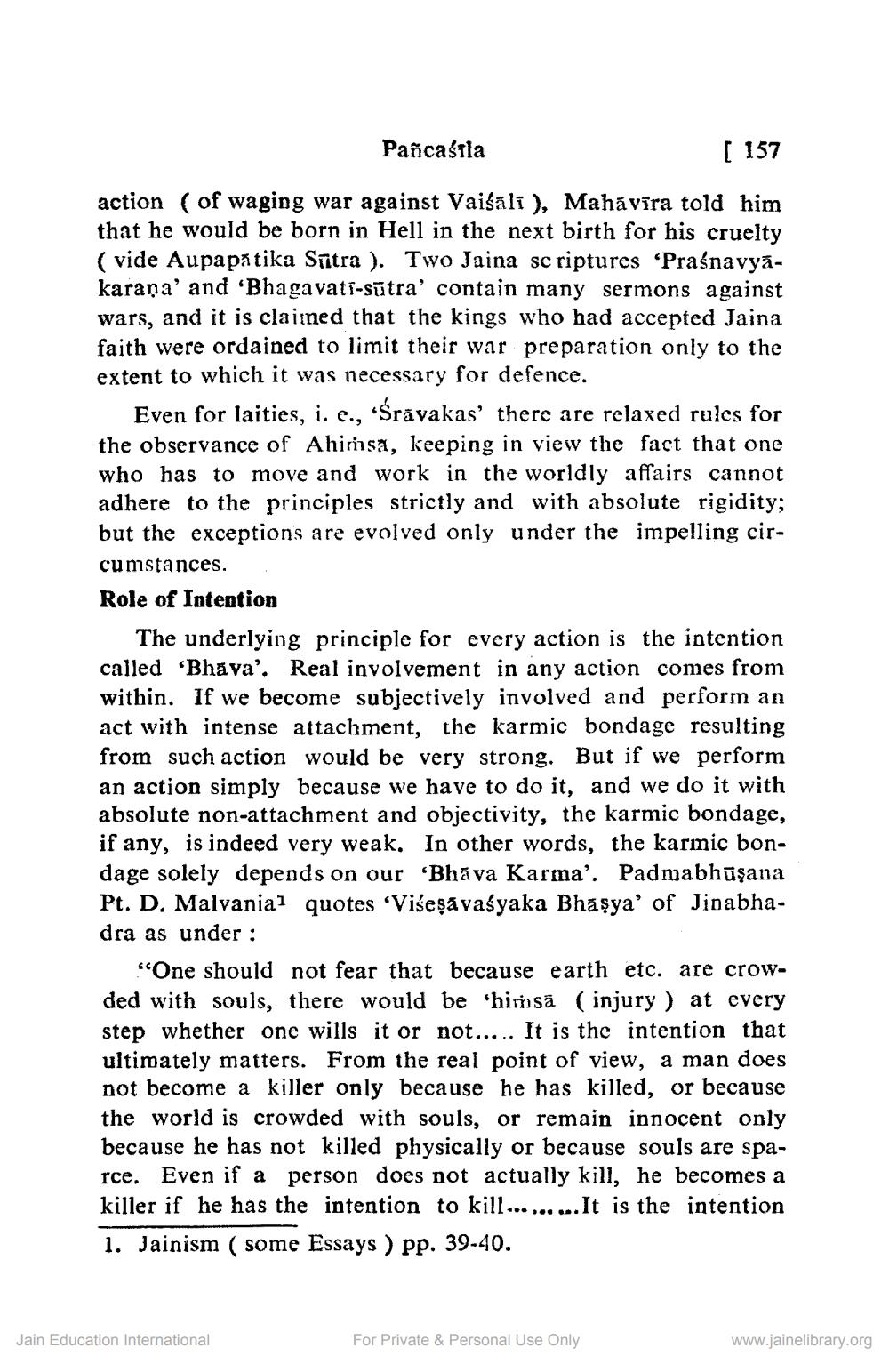________________
Pancasila
[ 157
action (of waging war against Vaibali), Mahavira told him that he would be born in Hell in the next birth for his cruelty (vide Aupapatika Sutra ). Two Jaina scriptures 'Praśnavyākarana' and 'Bhagavati-sūtra' contain many sermons against wars, and it is clained that the kings who had accepted Jaina faith were ordained to limit their war preparation only to the extent to which it was necessary for defence.
Even for laities, i. e., 'Śrāvakas' there are relaxed rules for the observance of Ahimsa, keeping in view the fact that one who has to move and work in the worldly affairs cannot adhere to the principles strictly and with absolute rigidity; but the exceptions are evolved only under the impelling circumstances. Role of Intention
The underlying principle for every action is the intention called "Bhava'. Real involvement in any action comes from within. If we become subjectively involved and perform an act with intense attachment, the karmic bondage resulting from such action would be very strong. But if we perform an action simply because we have to do it. and we do it with absolute non-attachment and objectivity, the karmic bondage, if any, is indeed very weak. In other words, the karmic bondage solely depends on our 'Bhava Karma'. Padmabhūşana Pt. D. Malvanial quotes Visesavasyaka Bhasva' of Jinabhadra as under :
"One should not fear that because earth etc. are crowded with souls, there would be ‘hirsa (injury ) at every step whether one wills it or not..... It is the intention that ultimately matters. From the real point of view, a man does not become a killer only because he has killed, or because the world is crowded with souls, or remain innocent only because he has not killed physically or because souls are sparce. Even if a person does not actually kill, he becomes a killer if he has the intention to kill... ... ... It is the intention 1. Jainism ( some Essays ) pp. 39-40.
Jain Education International
For Private & Personal Use Only
www.jainelibrary.org




